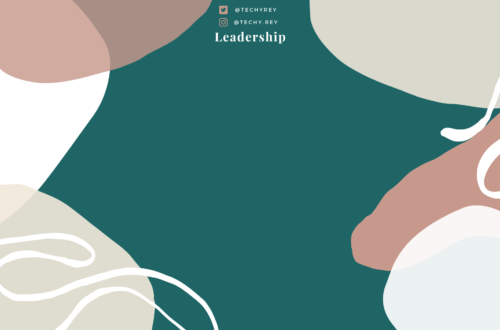
Recognising & addressing Toxic Positivity on Social Media
We all want to focus on the positive right? Sure, but it is possible to have too much of a good thing. The term “toxic positivity” recently popped up on my social feed, and I’d not heard of that term before but I immediately knew it was the name for what I have been experiencing on social media for a while. The context which I refer to is the mental health challenges created by toxic positivity online.
Firstly, what is toxic positivity?
I’m sure we’ve all seen the positive quotes, motivational accounts spreading that positive energy with “Nothing is impossible” and it’s great to see when it’s a Monday morning, trust me I love a good #MondayMotivation quote. It does help spread the positivity, but it’s also not sustainable for the rest of our lives, it can cause us to bottle up and suppress our negative emotions and that’s not healthy. Toxic positivity is referring to focusing on the good, positive emotions, and suppressing the negative emotions. For us to grow we need to embrace, address and reflect our failures because that’s part of healthy personal development and growth.
I address this in my talk ‘From Let Go to Leadership’ where I talk about getting let go from a junior developer role because a few months into the role the requirement was for a junior with more experience. There was a lot of emotions during the time of being let go, I did learn that the role just wasn’t for me and actually it was the best thing for my career, but I had to go through the roller coaster of being told ‘you’re just not good enough’, ‘you don’t meet the requirements of our junior role, despite having a degree in that field’. It’s a horrible feeling, which knocks your confidence and I did read the motivational quotes, but deep down I knew the motivational quotes would only get me so far.
Toxic positivity and Tech
I follow so many fantastic and inspiring developers on my socials, it’s a constant tech content haven. It also is kind of exhausting. I’ve actually muted (temporarily and permanently) tech advocates, content creators and influencers. I still want to support them and follow their journey, but on my watch not twitters. Constant streams of content is a great source of help and motivation, but it can also make you feel like you’re not keeping up, brings out the comparison monsters affecting your mental health with the feeling of ‘I’m not good enough’ and the dreaded imposter syndrome.
Toxic positivity on social media in general
This leads me on to the home of toxic positivity. Social media, when used correctly (whatever that is, there’s no guidelines!?…) it’s fantastic, personal branding, content consumption, business use, keeping in touch and so on. On the other hand it truly is the home of toxic positivity in many different ways. Firstly there’s an ongoing question of: Is social media bad for our health? which is another blog on it’s own, but we see a lot of the positive things our friends and others posts on social media. We can end up comparing our lives to those of others on social media when actually we only see the good stuff of their lives, which can impact our self-esteem, confidence and self-worth.
Recognising when it’s happening to you and what to do about it.
It’s important to recognise when this happens to you. I did some research on how to manage toxic positivity when it is weighing you down and tried it out myself. I found these worked for me, may not work for everyone though.
Set time aside for social media (and stick to it)
I have a tendency to look at it first thing in the morning and that could set my day depending on what was happening in the world. So that could make or break my mood for the day (or at least the morning). Instead, I stopped going on first thing and used my phone to record how much time I spend on each social media site per day. You can find it in your settings, check it, it might shock you. It certainly did for me. Then I decided to work on reducing that time, which has helped a lot.
Mute people
I don’t feel bad for muting people, they’re still there and i’m still following + supporting them. On one social site it allows you to temporarily mute for a time set by you. This is really useful have a search to see what your options are on what site.
Got your own content to create? Make a plan
If like me you maybe write a blog, or have a creative account, write out your goals, small steps that are achievable (again, this is another post on its own!!) keep checking in so that you can see whether you’re actually progressing. Don’t leave it up to someone else’s content to tell you how to feel about yourself and your goals.
Awareness of what toxic positivity is, check. Awareness of when you’re falling into the toxic positivity hole, check. Tips to manage it, check. I hope this post has been useful. It has really helped me solidify how I feel about toxic positivity after doing my research, understanding it and sharing that with others. If you’ve found this post interesting, I’d recommend doing some more reading into toxic positivity and how social media can affect your mental health.




One Comment
Darren Mitchell
Interesting blog. Never heard of it myself but what you say makes sense. Brain is ticking away now?. I’m thinking what impact does this have on teenagers and then when they get to 20 or 30 year old… wonder if this would blend into more addictions or mental health problems such as low mood, low self esteem and anxiety. ? my daughter can sometimes have 9 hours or more screen time if I’m not on the ball. She cracked my password once for family link lock, cheeky monkey??. Not to mention the content they have access to which is probably a full subject on its own. Absolutely disgusting. I thought I was going mad. ? When locking it, it would just unlock by itself…… It’s quite sad that she spends hours on it per day. It’s Like looking into a 3D world in a sense. I can see how she compares herself (everyone’s doing it and I’m not) copies her friends and influences etc… Attitude, face and eye movements (don’t get me started on that one?♂). I can’t get through to her that’s she doesn’t realise what she’s doing when she’s constantly watching makeup and other glamortastic things all the time. Nothing wrong with it in moderation but when does it become a problem? Maybe a problem here is that it’s just not one person here there’s loads doing the same things so more powerful conditioning going on maybe? FOMO is another one. Seem to have lot more friends and FOMO. We have a lot of comparing now, she’s got this, she’s got that so and so, can do that… 6 people are doing something she’s jealous and wants to be with them but forgets her other 300 friends are not doing out.. And then again, the week after… She then goes on to being miserable and down. I need to go research this actually.
I do think it is probably bad for our health.
SO MUCH INFORMATION. I want to say so many things here but I’m just waffling away now.
I run a group on Facebook and some days I can feel drained from it so have to back off for a few days.
Lots of posts around with how well things are. It’s a perfect life for everyone so you feel more isolated and alone with that feeling…